Spring 2021 Research Project Presentation
May 05, 2021 | News
The YRP Research Project Presentation the Spring 2021 semester was held at the Tulane School of Architecture on Monday, May10th from 8.30 am to 3.30 pm CDT via Zoom and Concept Board.
The review booklet with more information can be downloaded here.
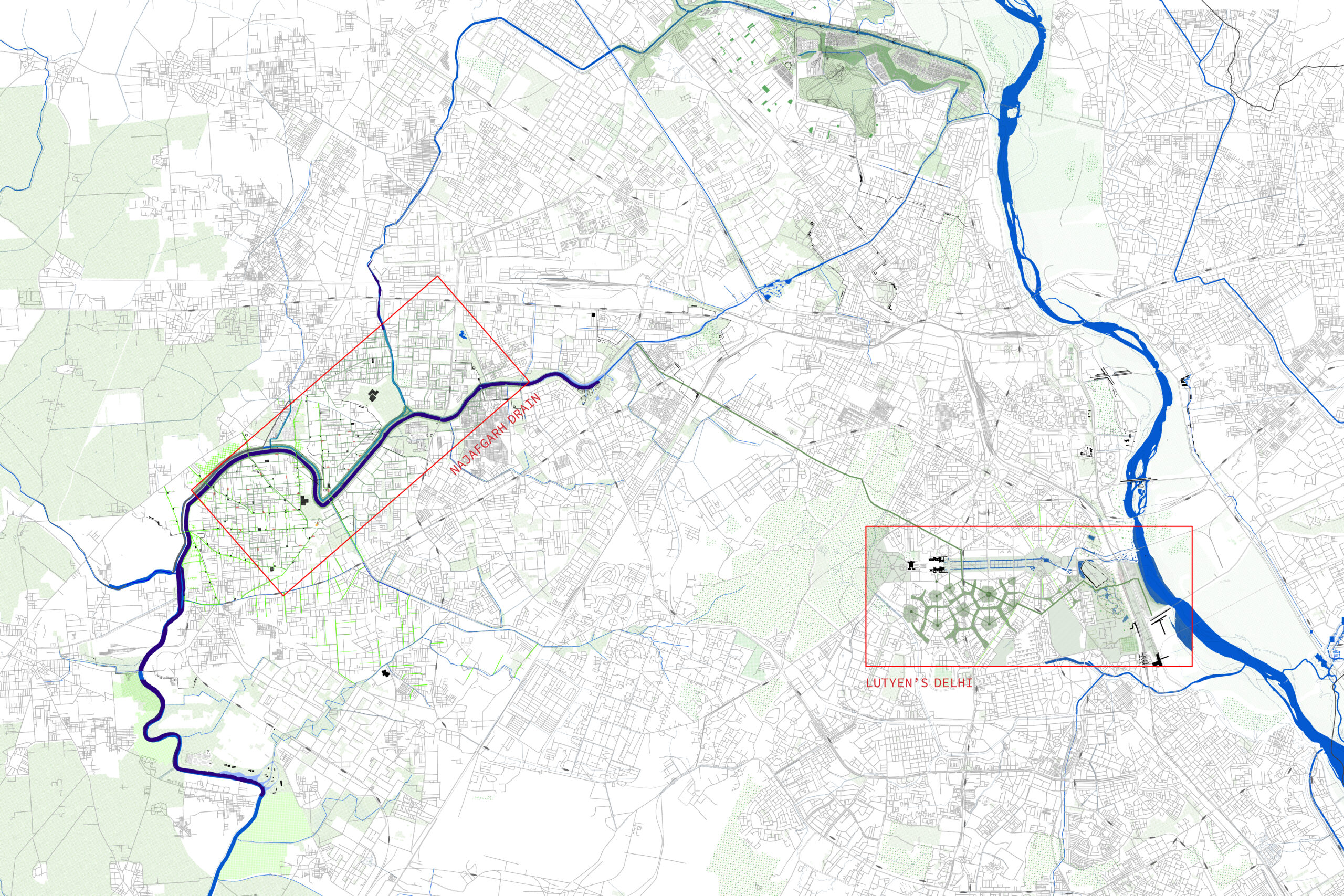
REVIEWERS
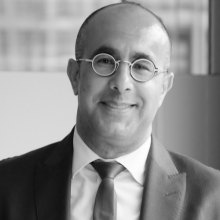
SAMEH WAHBA
Global Director, Urban, Disaster Risk Management, Resilience and Land Global Practice, World bank
Sameh Wahba, an Egyptian national, is the Global Director for the World Bank’s Urban, Disaster Risk Management, Resilience and Land Global Practice, based in Washington, D.C. The Global Practice, which also covers territorial development, geospatial and results-based-financing issues, has a portfolio of close to $30 billion in commitments in investment projects, program-for-results and development policy lending, and about 450 staff. Prior to this, Mr. Wahba served as the Director for Urban and Territorial Development, Disaster Risk Management and Resilience at the World Bank Group’s Social, Urban Rural, and Resilience Global Practice, where he oversaw the formulation of the World Bank’s strategy, design, and delivery of all lending, technical assistance, policy advisory activities, and partnerships at the global level. He also served as Practice Manager for the Urban and Disaster Risk Management unit in Africa and the Global Urban and Resilience Unit, and as Acting Director of Operations and Strategy for the Global Practice. He worked as Sustainable Development Sector Leader for Brazil, based in Brasilia, and as an urban specialist focused on housing, land, local economic development, and municipal management and service delivery in Latin America and the Caribbean as well as the Middle East and North Africa Regions. Prior to joining the Bank in 2004, he worked at the Institute of Housing and Urban Development Studies in Rotterdam and at the Harvard Center for Urban Development Studies.
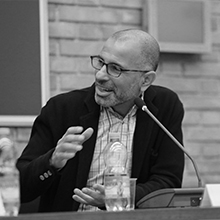
HORACIO TERRAZA
Lead Urban Specialist, World Bank
Horacio has more than 20 years of professional experience in the urban-environmental field, having worked both in the private sector and multilateral development organizations. He is currently the Lead Urban Specialist for the Latin American Region of the World Bank focusing on cities, urban infrastructure and resilience. During the previous 8 years he worked at the Inter-American Development Bank (IDB) as the Coordinator of the Emerging and Sustainable Cities Initiative (ESCI) and as Principal Water Specialist. Before the IDB Horacio worked for 11 years as a Senior Environmental Specialist at the World Bank, leading the urban environmental agenda and coordinating operations related to carbon finance in the Latin American Department. Prior to that, he worked in the private sector as Project Manager for environmental engineering companies providing treatment and final disposal of hazardous substances. Horacio has extensive experience in complex projects related to urban infrastructure and industrial pollution, implementing many of these within the framework of the principal international environmental protocols including: The Stockholm Convention on Persistent Organic Pollutants, the Convention on Climate Change and the Kyoto Protocol and the Montreal Protocol on Substances that Deplete the Ozone Layer. Horacio was trained as a mechanical engineer at the National University of La Plata in Argentina and holds a Master’s in International Economics and International Relations from the Johns Hopkins University School of Advanced International Studies (SAIS).
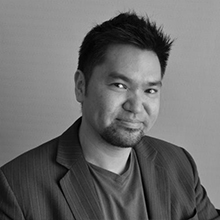
KENTARO TSUBAKI
Favrot Associate Professor of Architecture, TUSA
Kentaro Tsubaki is an Associate Professor and former Associate Dean for Academics at Tulane School of Architecture. He joined the faculty in the fall of 2009 from Texas Tech University, where he was an Assistant Professor.
He earned his B.Sci. in Physics from Kyoto University prior to pursuing his M. Arch. I. degree from University of Colorado and M. Arch. II. degree from Cranbrook Academy of Art. He is a registered architect in the state of Louisiana and in New York where he practiced as an associate at PKSB Architects, P.C, from 1997-2006. Tsubaki’s primary area of interest is in the tectonics of architecture, the materiality, and the logic of construction. His research focuses on what he calls an “imperfect extension” of architectural elements, an unorthodox approach to current trends where precision in planning and assembly is valued. His research is recognized on a national level in 2014 with JAE Best Design as Scholarship Article Award. His article, Foldout Drawing: A Projective Drawing for Fabric Forming was awarded as one of the two best articles published in the year by the Journal of Architectural Education, the flagship publication of the Association of Collegiate Schools of Architecture. He has lectured extensively on the subject, and the work has been featured in numerous publications and exhibitions. Tsubaki is equally prolific in the area of innovative design pedagogy. His insistence on direct, material-based explorations in studios and seminar courses are the hallmark.
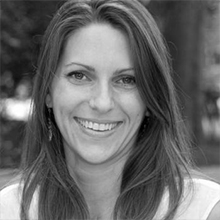
CATHERINE SCKERL
PhD Student: City, Culture, & Community Urban Studies, TU
Catherine Sckerl is an architect and urban planner with research interests in cultural and place identity, participatory design, place-making, and disaster recovery and international development. Originally from South Dakota, Sckerl completed her MArch at Tulane and MA from Oxford Brookes University before moving to Austin, TX. Her past research has addressed themes of participatory design and cultural/architectural heritage at sites ranging from the Treme in New Orleans to St. Petersburg, Russia to Venice, Italy. As a professional, Sckerl founded Espero Planning & Design Studio in 2011 and has worked with neighborhood organizations and non-profits, municipalities, and institutions to develop long-range master plans that capture and reflect the values of the local community. Key projects have included an NEA-funded Our-Town Grant for Creative Place-making with the Austin Film Society, campus planning and implementation at Austin Studios, university master planning for Texas A&M University-San Antonio, and Downtown Master Plans for the Cities of San Marcos and Edinburg, TX. Sckerl also worked on redevelopment plans for a few Gulf Coast communities following Hurricane Katrina. While vernacular place-making processes are of particular interest, Sckerl’s broader area of investigation centers on cultural and place identity of the built environment.

MRIGANKA SAXENA
Architect and Urban Designer
Mriganka is an Architect and Urban Designer with over fifteen years experience in the field of urban design and planning in UK and India. She has worked extensively with both the public and private sectors with a particular focus on design led policy and tools for effective delivery. Her core areas of expertise include restoration and management of natural water resources, Transit Oriented Development and mobility. Mriganka has written policy and design guidance for various towns and cities and draws on her on-ground experience of leading numerous large scale projects for the same. As Senior Consultant with the Delhi Jal Board, Government of NCT of Delhi, Mriganka most recently led an ambitious project of comprehensively restoring existing water bodies and drains in the city. Having put in place the overall approach and methodology, strategy for roll out, enabling frameworks, SOPs and standards, the project is now ready to get on ground. As Senior Consultant at and on behalf of the Unified Traffic and Transportation Infrastructure (Planning and Engineering) Centre (UTTIPEC), Delhi Development Authority in New Delhi, Mriganka co-authored the Delhi Masterpan 2021 Transit Oriented Development (TOD) Policy, the first ever to be adopted in the country. She also redrafted the Delhi Masterplan 2021 Policy on Transportation with the aim to bring about a mobility transition in the city.

BRIAN OWENSBY
Co-Director of Yamuna River Project, Professor of History, UVA
Brian Owensby is professor of history in the Corcoran Department of History at the University of Virginia. His scholarly work has ranged from social and political history in nineteenth- and twentieth-century Brazil to legal and imperial history in seventeenth-century Mexico. Current research includes historiography and historical theory from a Brazilian perspective and a book-length project on the Jesuit New World synthesis of the eighteenth century as a counterpoint to Eurocentric accounts of modernity. He has taught a variety of courses large and small to undergraduates, including a Global History class, and is supervising several graduate students. He served as chair of the Corcoran Department of History from 2009 to 2012.

CATALINA MARULANDA
Practice Manager, Urban Development, South Asia, World Bank
Catalina Marulanda is originally from Colombia, but she is currently based in Washington DC where she is the Practice Manager of the Urban Development Unit in the South Asia Region. As such she oversees a portfolio of roughly US$5 billion in lending operations under development and implementation in Afghanistan, Bangladesh, Bhutan, India, Nepal, Pakistan, Sri Lanka and The Maldives. This role involves working with national and local governments on urban development, promoting initiatives that aim at making cities more economically productive, environmentally sound, livable and less vulnerable, particularly for the poor. This is done through operations that focus on: (i) financing investments, (ii) providing technical assistance, and (iii) undertaking non-lending analytical and policy advisory work, on areas including municipal management, housing, urban infrastructure, neighborhood upgrading, solid waste management and others. Over the past 14 years at the Bank Catalina has focused on topics related to solid waste management, chemicals management, and brownfield remediation in Latin America, East Asia, South Asia and the Middle East. Catalina has a Bachelors Degree in Civil Engineering from Lehigh University and a Ph.D. in Civil Engineering from the Massachusetts Institute of Technology.
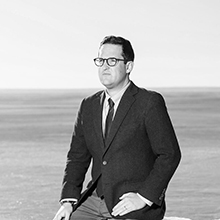
JESSE KEENAN
Associate Professor of Real Estate, TUSA
Jesse M. Keenan is an Associate Professor and social scientist within the faculty of the School of Architecture at Tulane University in New Orleans, Louisiana. Keenan leads courses and seminars advancing the interdisciplinary fields of sustainable real estate and urban development. As a globally recognized thought leader, Keenan’s research focuses on the intersection of climate change adaptation and the built environment, including aspects of design, engineering, regulation, planning and financing. Keenan has previously advised on matters concerning the built environment for agencies of the U.S. government, governors, mayors, Fortune 500 companies, technology ventures, community enterprises and international NGOs. Keenan formerly served as the Area Head for Real Estate and Built Environment on the faculty of the Harvard Graduate School of Design; Fellow of Science, Technology and Public Policy at the Harvard Kennedy School of Government; and, as the Research Director of the Center for Urban Real Estate on the faculty of the Graduate School of Architecture, Planning and Preservation at Columbia University. Keenan is currently a Visiting Scholar at the Perry World House at the University of Pennsylvania. Keenan is the also the co-author of a variety of design research monographs, including, Mobility Oriented Design: The Case for Miami’s Metrorail (Office of Urbanization, Harvard Graduate School of Design, 2019); Adapting Miami (Harvard Graduate School of Design, 2020), and Multiple Miamis (Harvard Graduate School of Design, 2020).

RUSS KATZ
Architect, Developer, Managing Director of MOMIDC
Architect and developer Russell Katz is the Managing Director of MOMIDC, a real estate firm focused on the design, development, ownership and management of environmentally conscious properties in the Washington, DC region. Russell is driven by the belief that environmentally sustainable, beautifully designed projects can be financially successful. He guides MOMIDC’s selective project choices and oversees the operation of the firm’s portfolio, which currently includes 350,000 square feet of multifamily residential, retail and office space, as well as 185 acres of conserved woodlands.

MARGARITA JOVER
Associate Professor in Architecture, TUSA
Margarita Jover received a Master of Architecture degree from the Polytechnic University of Catalonia in 1995. Together with Iñaki Alday, she founded the internationally awarded firm aldayjover architecture and landscape in 1996 in Barcelona, Spain. The multidisciplinary, research-based practice focuses on innovation and is particularly renowned for its leadership in a new approach to the relation between cities and rivers, in which the natural dynamics of flooding become part of the public space. She has taught at the Polytechnic University of Catalonia, the University of Navarra, the University of Vic-Central University of Catalonia and the University of Virginia. At the University of Virginia, she was Research Faculty (2012-15), first Professor of Practice of the School of Architecture (2015-17) and tenured Associate Professor (2017-18). Jover is co-author of the book Ecologies of Prosperity (ORO Editors, 2018) and The Water Park (ACTAR, 2008). She has been a juror for several honor awards, including the FAD Architecture Prize and Mies van der Rohe European Union Prize for Architecture (2015), and for international competitions including the Glories Square in Barcelona and the Hainan Eco-Island in China. Both in academic research and in practice, Jover promotes a broader understanding of architecture that aims to mitigate and reverse socioecological crises. Her academic research line discusses the reform of the current model of progress by promoting a specific socioecological urbanism.

SCOTT BERNARD
Associate Dean for Academics, TUSA
Scott Bernhard is the Mintz Professor of Architecture at the Tulane School of Architecture in New Orleans where he has been a member of the faculty for more than 26 years. Scott has served as both Associate Dean and Interim Dean of the School and was Director of the Albert and Tina Small Center for Collaborative Design (formerly Tulane City Center) from 2007 to 2012. He is the recipient of numerous teaching awards including the President’s Award for Excellence in Graduate and Professional Teaching the Inspirational Teacher Award and the Excellence in Teaching Award, University-wide honors bestowed by Tulane. He was the 1995 Tulane School of Architecture Professor of the Year, and won the Malcolm Heard Teaching Award in 2001, in 2007 and again in 2012. He is a licensed Architect and principal of a small, collaborative, research and design practice focused on building in the climate and context of New Orleans. He has built more than a dozen residential additions and minor buildings in New Orleans and the surrounding region, winning three AIA Honor Awards and other awards for his work. Since 2001, he has taught studio and seminar courses investigating the subject of multi-family housing. His current research and publication includes work on the complexities of the urban fabric in New Orleans, on the relationship between architecture and social entrepreneurship and on the nature of community in raised dwellings.

ANDREA BARDON DE TENA
Predoctoral Teaching Fellow, TUSA
Andrea Bardon de Tena is a Spanish architect who develops her PhD in Advanced Architectural Projects at the Polytechnic University of Madrid. Her research focuses on the impact of cultural hybrization on local architecture and spatial transformations. She holds a Master (2018) and a bachelor’s degree (2016) both in Architecture and carried out at the Polytechnic University of Madrid. During her studies, she spent one year abroad (2014-2015) at La Cambre Horta Faculty of Architecture, Université Libre de Bruxelles, in Belgium. There, she reinforced her interest in the connection between architecture and human sciences, taking multidisciplinary classes including anthropology of space. She also studied in Uniontown, Pennsylvania, United States, as a long-term Rotary Youth Exchange Student (2008-2009). She has worked abroad for office Atelier 4/5 Architecture, in Brussels, Belgium, and for CONI Association, in Coban, Guatemala, where she participated in the Rural School Prototype Project for maya-q’eqchi indigenous communities in Alta Verapaz. For the past two years, she has been working in Burgos&Garrido Architects, in Madrid, Spain, developing international landscape and housing projects. At the same time, she started her PhD thesis, being actively involved in college as a visiting lecturer and teacher assistant for Architectural Design and Research Tools classes.
SCHEDULE
Yamuna River Project Final Review, Spring 2021
CDT: 8.30 am to 3.30 pm
EDT: 9.30 am to 4.30 pm
IST: 7.00 pm to 2.00 am





